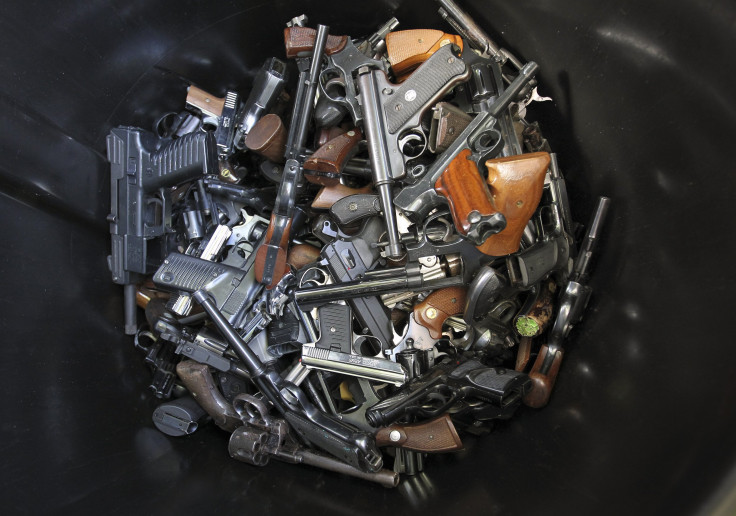Gun Control Debate 2013: How Illegal Gun Trafficking Works, A Convicted Murderer Explains

In the U.S. gun debate that dominated Washington politics earlier this year, lawmakers tried unsuccessfully to pass laws that would keep guns out of the hands of criminals.
One supporter of these gun control measures is convicted murderer John Lennon, who is currently serving 28 years to life at Attica Correctional Facility. In an article published on the Atlantic’s website Wednesday, Lennon provided an inside look into how criminals work the system to get guns. Lennon describes himself and the man he killed as, at that time, “gun-toting thugs immersed in gangster culture,” both “out on bail for separate gun charges.”
"Here’s how the game works. Criminals manipulate people with clean records -- cash-strapped students, vulnerable women, drug addicts -- to buy guns for them in states with minimal oversight, like Virginia," Lennon said. "The criminal transports the guns to New York, then resells them or trades them for drugs that he’ll take back to Virginia to sell. This was the hustle when I was out in the '90s. I’m sure some form of it still continues."
Expanding background checks for gun purchases, which senators tried to do in legislation earlier this year, would help end this process, Lennon argues.
Republicans opposed to background check legislation argued during the gun debate that expanding background checks was futile because criminals do not submit to background checks. This was also the National Rifle Association's argument. Instead, some advocated for increasing prosecutions for illegal gun possession. In his essay, Lennon says this is the opposite of what would deter criminals like himself. “Aggressive prosecutions are punishment measures that, frankly, do not deter criminals from acquiring, possessing or killing with guns,” he wrote. “Conversely, intensifying background checks will change the game and spook those who buy guns for criminals. This will deter so-called straw purchases.”
Though Lennon doesn’t address this in his essay, members of the House and Senate also introduced legislation this year to crack down on straw purchases, the main avenue Lennon identifies for how he got numerous guns over the years. U.S. Rep. Elijah Cummings, D-Md., who was behind one of these bills, described one case in which a Georgia man had his girlfriend buy him 64 guns in less than three months, some of which ended up in crime scenes in Maryland. But those bills also failed, and the NRA opposed increasing penalties for straw purchases, which help gun manufacturers sell more guns. As Lennon put it, through straw purchasers, “Like most criminals, I created an extraordinary demand for the gun sector,” he said.
© Copyright IBTimes 2025. All rights reserved.






















